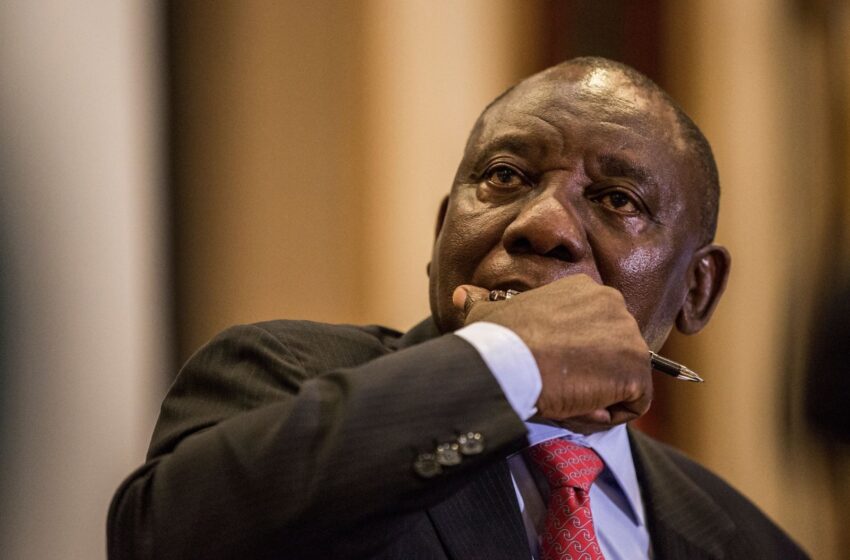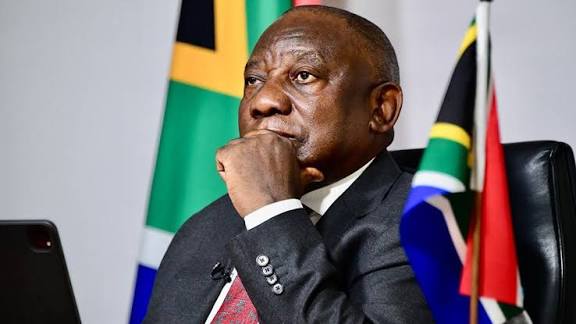US tariffs hit South African businesses hard… R750m contract loss, others to know

South Africa President Cyril Ramaphosa
The impact of recent US tariff measures has begun to reverberate through South Africa’s manufacturing sector, with at least one major player already counting heavy losses. Jendamark Automation, a leading Gqeberha-based manufacturer specialising in assembly lines and production software for top global carmakers like Ford, BMW, Volkswagen, and Mercedes-Benz, has lost R750 million worth of potential contracts in a matter of days.
Managing Director Siegfried Lokotsch revealed that the deals, which were just weeks away from finalisation, fell through abruptly due to Washington’s new trade policies. “The effect has been immediate and substantial,” he told City Press, noting that the sudden setback could threaten not only the jobs of Jendamark’s 500 employees but also the livelihoods of about 3,000 workers within its local supply network.
The fallout stems from the 30% tariffs the United States has slapped on imports from selected countries, including South Africa. The situation is further complicated by former US President Donald Trump’s warning that, if re-elected, he could introduce an additional 10% tariff on goods from BRICS nations, a grouping which includes South Africa.
The situation is raising alarms across the Eastern Cape, a region whose economy is deeply intertwined with the automotive and manufacturing industries. The Nelson Mandela Bay Business Chamber, which represents 700 businesses, has flagged the escalating trade tension as a major threat.
Denise van Huyssteen, the chamber’s CEO, warned that the Eastern Cape could suffer the most severe consequences of the unfolding crisis. “This isn’t just a localised issue. Global trade dynamics are shifting dramatically, and South Africa may find itself increasingly isolated,” she said.
She added that international corporations were already beginning to realign their manufacturing strategies, opting to invest in regions that offer more stable trade conditions and fewer barriers. If this trend continues, South Africa risks being edged out of critical global supply chains, particularly in the automotive space where it currently plays a substantial role.
“The ecosystem that supports original equipment manufacturers (OEMs) in South Africa employs more than 100,000 people directly, with over half a million jobs linked to the broader supply chain,” van Huyssteen explained. A downturn in this sector, she cautioned, would ripple across multiple industries—from logistics and IT services to banking, hospitality, and retail.
Trade unions are also sounding the alarm. In a recent letter to President Cyril Ramaphosa and members of the economic cluster, the National Union of Metalworkers of South Africa (Numsa) described the situation as a looming national jobs crisis.
Irvin Jim, Numsa’s General Secretary, pointed to what he called “a bloodbath of job losses” in manufacturing—exacerbated by both foreign product dumping and punitive tariffs from the US. He highlighted ongoing closures among companies in the automotive components supply chain, citing Macsteel’s recent retrenchment of hundreds of workers in Gauteng as a grim example.
Jim called on the presidency to act decisively: “Once a manufacturing company shuts down, those jobs rarely return. We must do everything possible to preserve the country’s manufacturing base and safeguard employment.”
With the automotive sector contributing significantly to South Africa’s industrial output and export profile, the growing pressure from global trade tensions could have far-reaching economic consequences. As the global order shifts and geopolitical interests take precedence over long-standing trade relationships, South Africa faces difficult decisions on how to protect its industries and people from the storm gathering on the horizon.




